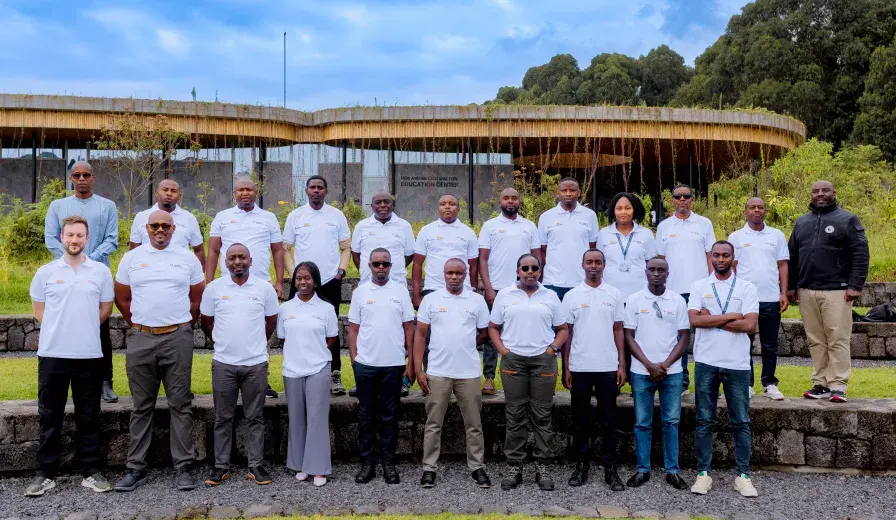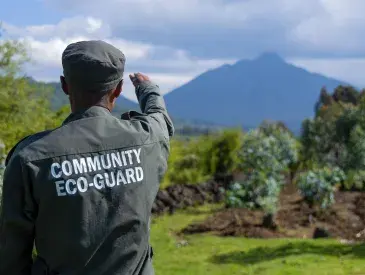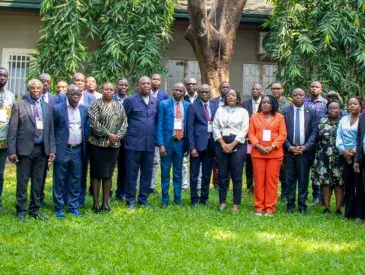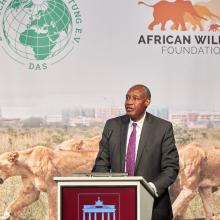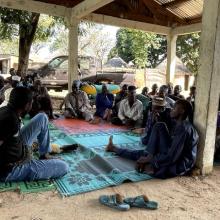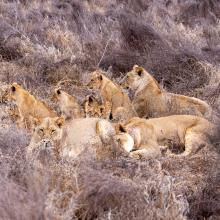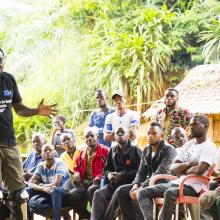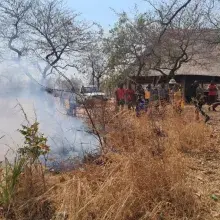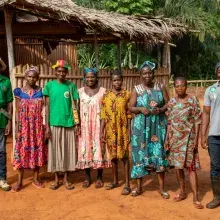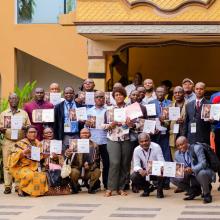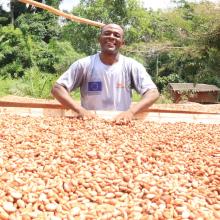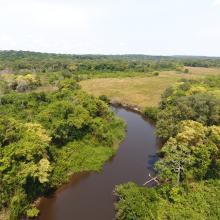Recent Articles
Africa 2025 Outlook: A Call for Accountability and Action
January 1, 2025
Kaddu Sebunya
2024: A Year of Wake-Up Calls, Lessons, and Resolve for African Conservation
December 23, 2024
Kaddu Sebunya
Field Journal
Empowering Communities Through a Rights-Based Approach to Conservation
December 20, 2024
Manda Nfor
Why Collaring Lions Enhances Conservation and Coexistence
December 17, 2024
Rono Kibet
Field Journal
Rights-Based Approach to Conservation Empowers Communities in the DRC
December 6, 2024
Rachel Emisave
Field Journal
Community-Led Wildfire Management Boosts Conservation, Sustains Livelihoods in Zimbabwe
November 29, 2024
Ndanatsiwa Tagwireyi
Field Journal
Margaret Mereyian: Inspiring the Next Generation of Conservation Leaders
November 22, 2024
Kendra Atenya
Field Journal
AWF's Agroforestry Initiative Empowers Women, Conserves Dja Landscape
November 15, 2024
Manda Nfor
Field Journal
Six Years On, Alternative Livelihoods Empower Women and Youth
November 7, 2024
Rachel Emisave
News
Three-Year AWF Program Trains DRC Officers at Major Ports to Combat Wildlife Trafficking
October 29, 2024
Rachel Emisave
Global Leadership
Why Africa’s Youth Voice is Vital to COP16 Biodiversity Talks
October 24, 2024
Rono Kibet
Field Journal
How Sustainable Livelihoods Are Safeguarding Dja Faunal Reserve
October 22, 2024
Manda Nfor
Global Leadership
How COP16 Can Deliver on Biodiversity Goals for Africa – A Conversation with Fred Kumah
October 16, 2024
Rono Kibet
Ethiopia’s Bole Airport Introduces AWF-trained Detection & Deterrence Dogs to Strengthen Fight Against Wildlife Crime
October 11, 2024
Wambui Odhiambo
